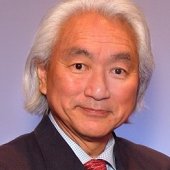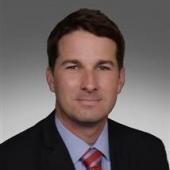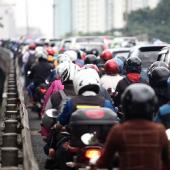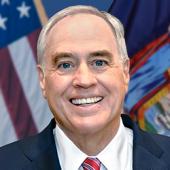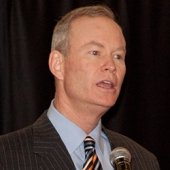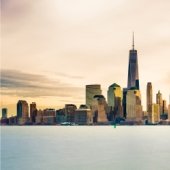Marc Morial, President of National Urban League, challenges CEOs to invest in cities
IN BRIEF
- 6:15 – The future of work and cities: “I think ‘what is the future of work’ is such a good question. I think we're all trying to determine the best approach. Is it a hybrid approach? Is it part-time? Full-time? Come back in platoons?”
- 10:30 – City officials need greater focus on housing: “Cities have to look to investing in housing, new housing, renovated housing, affordable housing.”
- 13:50 – A call to action for business leaders: “As cities go, so goes this nation. We need more major employers to look to cities as places to locate and then make a commitment to the residents of those cities for those economic opportunities and those quality jobs.”
In this podcast, a wide-ranging conversation with Marc Morial, President and CEO of the National Urban League, an organization dedicated to economic empowerment, equality, and social justice to elevate the standards of living for African Americans and other historically underserved groups. Marc shares his perspective on the short- and long-term prospects of cities and their diverse residents in the aftermath of COVID and beyond. Hosted by Joe Kornik, Director of Brand Publishing and Editor-in-Chief of VISION by Protiviti.
MARC MORIAL, PRESIDENT OF NATIONAL URBAN LEAGUE, CHALLENGES CEOS TO INVEST IN CITIES - Audio transcript
Joe Kornik: Welcome to the VISION by Protiviti podcast. I'm Joe Kornik, Director of Brand Publishing and Editor-in-Chief of VISION by Protiviti, our quarterly content offering where we put megatrends under the microscope and look far into the future to examine the strategic implications of big topics that will impact the C-suite and executive boardrooms worldwide. In this, our first topic, “The Future of Cities,” we’re exploring the evolution urban areas are undergoing post-COVID, and how those changes will alter cities over the next decade and beyond.
Today, I'm happy to be joined by Marc Morial, President and CEO of the National Urban League, an organization dedicated to economic empowerment, equality, and social justice to elevate the standards of living for African Americans and other historically underserved groups. With 90 affiliates serving 300 communities in 37 states, plus the District of Columbia, the Urban League advocates for policies and services that close the equality gap. At the community level, the organization and its affiliates provide direct services that improve the lives of more than two million people annually. And now, I'm joined by Marc. Marc, thanks so much for joining us today.
Marc Morial: Thank you. I really appreciate you having me, and good to have a good conversation today.
Kornik: We've heard a lot about how COVID could potentially be the beginning of the end for cities, or how cities are maybe in trouble right now. And certainly, cities were hit hard, we know that. As we slowly begin to emerge from this pandemic, how do you think cities are faring right now, and how do you view their prospects short term and long term in terms of their future?
Morial: One thing that I will tell you is that the mayors of cities were champions. They were required to make difficult decisions like closing schools and closing businesses and closing, in effect, the economy. They were required to do it without a real national plan, they were required to do it in an environment of great chaos and uncertainty, and they were required to do it while their tax revenues plunged as they closed restaurants, hotels, and businesses.
So, this generation's mayors, I do not believe, have gotten enough credit for the difficult and challenging decisions they have had to make in a time of tremendous uncertainty. The one thing I'm confident of, urban residents are tough. They are strong, they’re resilient, they love their communities. I know that in some places, people had moved away from cities and moved to rural areas, they moved to suburban areas. I think that's probably, in some ways, going to be a bit temporary, because what we love as people is to gather, to cluster, to enjoy each other, to participate and be entertained, to be close to our friends, to be close to our family members. So, I think the future is going to be strong for cities but it's a tough road back.
We now have to rally as a nation. Communities have to rally to try to build a new normal. Build a better normal coming out of the pandemic. And I think that's the challenge cities faced. The cities have been rocked fiscally. Their residents have seen the toughest and most demanding problems with COVID. There have been deaths, and people died without the chance to respect their funeral. So, against that backdrop though, I feel fairly certain that if we—and I think most predictors suggest we get an economic bump next year, I think that cities are going to be on their way for a strong recovery rebound.
Kornik: I hope you're right. An economic bump would certainly be welcome news because as you pointed out, there had been a lot of layoffs, there's been a lot of cutbacks to services. And we have seen in both people and businesses sort of—the short-term trend at least has been leaving cities during COVID and even post-COVID. And there's certainly a distinct possibility that cities will see maybe significant shortfalls in revenue at a time when…
Morial: I think some of the larger cities like New York City, like Los Angeles, cities that are heavily populated, sometimes a bit crowded — I think that people who move out may—who could move out may remain because of the cost of housing. I think medium-sized cities or smaller communities may not have faced the same effect. When I look at American cities today, there’s this top tier of 10 to 12, 14, 15 mega communities, there’s New York, Boston, Washington, Chicago, Seattle, Los Angeles, Houston, Atlanta, Miami, and Dallas. But then there's Nashville, and there’s Chattanooga, and there’s Cleveland, and there’s Memphis, and there’s New Orleans, and there’s Wichita, and Kansas City, and Cleveland, and Pittsburgh. These are medium-sized cities. They're big cities but they’re medium sized. I think it remains to be seen if the pandemic had the same effect on them in terms of out migration of people as it did in a place like New York City where it's not—I have several friends. I'm sure people in New York City are more likely to have second homes. More capable of saying, “I can relocate and still do my job just as well, even though I'm not at my office as I traditionally have been.” So, I think it may not be the exact same picture or the same reality to each city. I think it depends on the region, I think it depends on the size, I think it depends on a whole host of circumstances.
Joe Kornik: Services and public services that are needed, unfortunately, are at risk, I think, in terms of potential tax shortfalls. Who knows what's going to happen with work—with the future of work.
Morial: Let me tell you. I think people are more mobile. I think that is a really, really good question. What is the future work and what will the business people feel? "Look, I don't have to invest in that much real estate. I have a smaller office because my workforce has demonstrated the capability to work remotely.” I think you could see some businesses doing that. But I don't think there will be a rule, I think there will be multiple, if you will, approaches. I mean, look, I have a workforce of about 100 employees. We’re in lower Manhattan. We’ll soon be moving uptown to Harlem. We're trying to determine what the best approach is. Right? Is it a hybrid approach? Is it come-back-part-time, come-back-full-time, come back in platoons? Lots of options to try to balance. We've got to keep our business moving. We got to keep our agency going.
But, on the other hand, what about quality of life? Sometimes you can enhance productivity when people don't have to commute an hour each way. Sometimes you can enhance productivity when people feel like, “Well, I really don't need to leave to take much. Maybe I’ll just go downstairs.” These changes—maybe it's easier for me in terms of taking care of my children if I don't have to go into the office. Maybe it's more efficient for me. All of these are going to be, I think, considerations of the new workforce. Of course, there are those who have those option and there are those restaurant workers, people that work at cleaners, people that work at hospitals who do not have those options. So, we're going to see a disparity or we're going to see different ways depending on the type of work you do. Different options.
Kornik: Sure, sure. If we take a bit of a step back and we think about some of the major challenges facing cities right now, the US cities, and there are—particularly, there are more—maybe they are more vulnerable residents. What do you think of the major challenges that need to be overcome in the next year short term or even longer term?
Morial: I think getting people back to work. Quality jobs that pay living wages is a big, big challenge for cities, but in the short run, we've got to get people back to work. People who are working are always better off than people who cannot work or do not work or unable to work. I think the issues of racial justice are going to continue to be issues that every community and every institution have to confront and grapple with because of the moment of 2020 and the awakening of 2020. So, there's no shortage of major challenges, I think, facing America’s cities. And some of these challenges are peculiar or specific to a city, some of them are part of just the broader challenges that the nation faces. Whether you live in a big city, small town, or in rural or suburban America, there's some ever present realities that we face.
I'm hopeful that we're going to have a strong economic growth. I’m also quite candidly hopeful that—and will be working hard, that the president will get a substantial part of this infrastructure planned. Because what I see in cities across the nations, deteriorating water systems, or problems with the electric grid; roads and bridges and transit systems, schools, parks, and playgrounds. We need that investment. Cities need that investment, because cities—many major American cities were products of the early 20th century. Cities grew, technology grew, and electrification, and new water systems, and new housing stock. Now, much of that infrastructure is now 100 years old. It's in need of renewed investment so it can last, so it could continue to produce the things that we need to have, a decent quality of life for all people.
Kornik: Yes, absolutely. And that sort of leads me into my next question, which is, what do you think needs to change as cities look to reinvent themselves? I mean, COVID has given, potentially, cities, a sort of a reboot, a chance to circle the wagons and come out stronger on the other side. It sounds like you're optimistic about the future of cities. What do you think needs to change?
Morial: I’m optimistic but it would still—we need greater focus, greater energy on housing affordability. If there's one thing that is a big risk for cities, is that their housing stock becomes unaffordable and that their housing stock becomes of inadequate quality. We have a problem with that already in America, where a lot of Americans face as much as 50% of their take-home income for rent. That reality has changed dramatically since the year 2000. In 2000, the average rent was about $600.00 a month, now it's up to $1,400.00 a month. That means it’s more than doubled. The people’s wages, average wages have not doubled. And that is just—you cannot get around the need to have a decent roof over your head, whether you rent it or whether you own it.
So, I think cities have to look to investing in housing, new housing, renovated housing, affordable housing, housing that matches the families of the 21st century. Sometimes smaller, sometimes more traditional. That is a big, big thing, I think, that needs to elevate and to change. I think the larger cities, and I see cities that once didn’t have traffic challenges, like Atlanta and Houston, have to rethink whether it's time for them to make significant investments—new investments in public transit, in rail systems. Otherwise, those cities become great cities but it becomes difficult to move around. It affects business growth, quality of life, economic development. Think of New York City. New York City is a beautiful creation. What would New York City be without its public transit system? A city maybe a third of its size, when you take the public transit system, when you take the subway system, you take the rail systems, whether it's Metro North, Long Island Railroad, New Jersey Transit; you take the buses and you amalgamate that, they—without it, the city could not move and could not function. Newer cities built in the automobile era, didn't invest in the same way in public transit, and then it becomes a limiter of growth. A limiter of your ability to grow, your ability to grow your neighborhoods, the inability for you to grow. So, I think I would identify housing, I would identify transportation, and always, always jobs, quality jobs.
Kornik: Absolutely. Yes, you've given us a lot to think about and I'm going to ask you, a) if we’re up for the challenge, which I hope we are. And b) when you look forward—I'm going to ask you to look a little further than just next year or next quarter, look a decade out. Do you think cities will still be, assuming they meet some of these challenges that maybe you put out there to them, will still be viable and dynamic and great places to live and work?
Morial: I think always, but we have to treat our cities as the jewels that they are. If you went to Tokyo, Beijing, Paris, Beirut and you stood out and said, “I'm from Illinois!” they might say, “Illinois? I think I've heard it.” But if you said, “I’m from Chicago!” “Oh yes, Chicago.” “I'm from New Orleans.” “Oh, yes.” “I'm from Atlanta.” “Georgia?” “Yes.” “Is that [Unintelligible]?” “No, It's a state in…” “Oh, yes, yes.” What's my point? As cities go, so goes ascension. We got to treat them like the jewels they are. They are the economic capitals, they are the cultural capitals, they are the media capitals, and they are also the place where multiple ethnicities and races and people of different backgrounds live together. And while there’s division and we have a great set of challenges, I do remain an optimist when it comes to the future of American cities. But I issue a warning. We cannot do what we did in the ’70s and the ’80s, which is redline and underinvest. We now have to overinvest.
Public investment is important, private investment is important. I've been on a bit of a campaign to encourage technology companies like the Googles of the world, like the Amazons of the world. When they invest in new facilities, look at America’s cities. Look at America’s urban communities, look at downtown Newark. Both Prudential and Panasonic have office buildings in downtown Newark. We need more American businesses. We need more major employers to look to cities as places to locate because then—and then make a commitment to the residents of those cities for those economic opportunities and those quality jobs.
Kornik: Marc, are we up for the challenge?
Morial: We’re up for the challenge. I think we are, but it's going to take—it’s going to take united front. It’s going to take a lot of work. It’s going to take a lot of determination, but we’re up for the challenge.
Kornik: Outstanding. Marc, thank you so much for your time today and for your insights. I enjoyed the conversation immensely.
Morial: I appreciate you so much. Thank you.<>Joe Kornik: Thanks for listening to the VISION by Protiviti podcast. Please rate and subscribe wherever you listen to podcasts, and visit us at vision.protiviti.com.
Marc Morial is President and CEO of the National Urban League, an organization dedicated to economic empowerment, equality, and social justice to elevate the standards of living for African Americans and other historically underserved groups.
Did you enjoy this content? For more like this, subscribe to the VISION by Protiviti newsletter.



